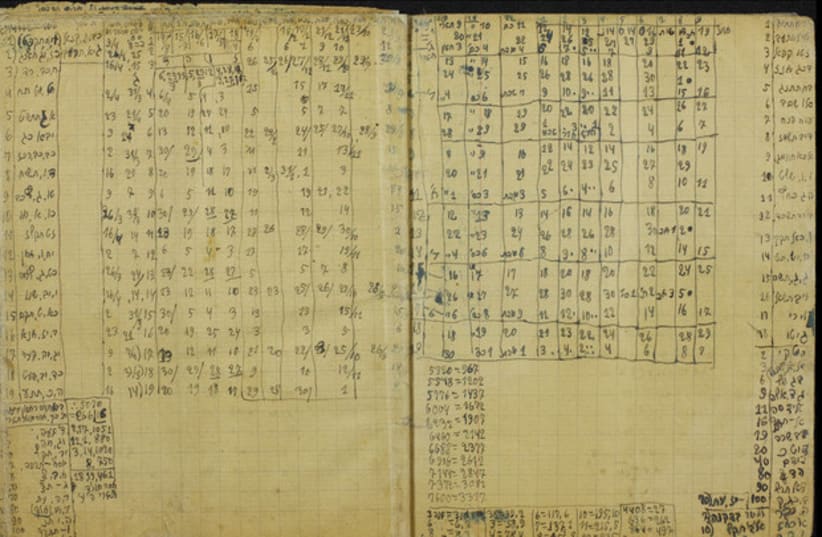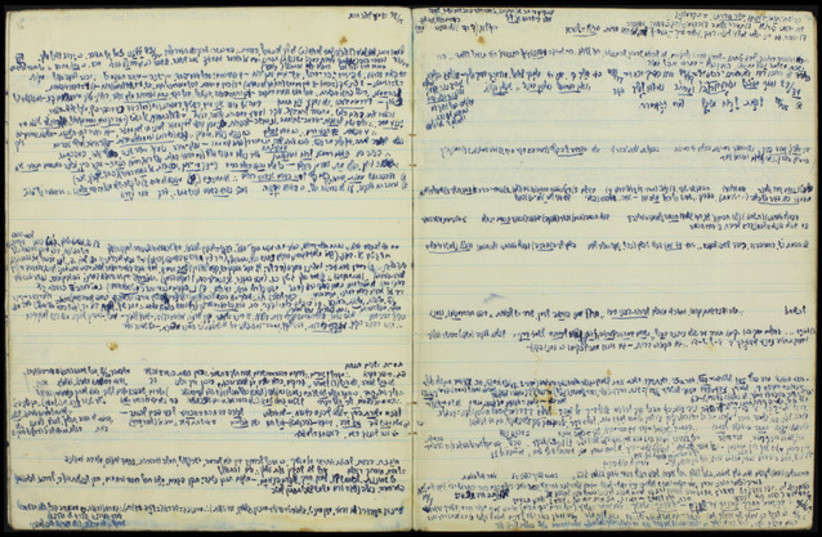The National Library of Israel (NLI) has opened public access to “singularly significant” archival materials from an individual known as “Mr. Shushani,” who served as an influential teacher to a number of significant 20th-century Jewish cultural and intellectual figures, including Elie Wiesel and Emmanuel Levinas.
The new collection includes some 50 of Shushani’s notebooks, filled with his thoughts, musings and ideas in the realms of Jewish thought, as well as memory exercises, mathematical formulas and more.
According to the NLI, Shushani had “an extraordinary photographic memory” and was reportedly able to recall and cite the entire Hebrew Bible, Talmud and other Jewish texts from memory, while also mastering various fields of mathematics, physics, modern philosophy and different languages.
Scholars believe the notebooks will reveal some potentially groundreaking ideas and teachings related to Jewish thought and texts, the National Library said.
A mysterious but charismatic figure, Shushani’s students saw him as one of the most influential figures in their intellectual development. One of them, Prof. Shalom Rosenberg, a former chairman of Jewish thought at the Hebrew University of Jerusalem, who donated his teacher’s materials to the library, said the world “is divided into those who knew him and those who did not.”
Shushani zealously guarded his true identity, and few details about his personal life are known today, more than 50 years after his death.
He was born in the Russian Empire at the turn of the 20th century and traveled throughout Europe, Mandatory Palestine and later to Israel, the United States, Uruguay and other countries.
He died in Uruguay on January 26, 1968.
Modern scholars believe his true name was probably Hillel Perlman, and he counted among his students Rosenberg, future Nobel laureate Wiesel and philosopher Levinas.
Rabbi Abraham Isaac Kook, father of the religious-Zionist movement who knew him in his youth, described Shushani as “one of the most excellent young people... sharp, knowledgeable, complete and multi-minded.”
Wiesel wrote of him that he had mastered some 30 ancient and modern languages, including Hindi and Hungarian.
“His French was pure, his English perfect, and his Yiddish harmonized with the accent of whatever person he was speaking with,” Wiesel wrote. “The Vedas and the Zohar he could recite by heart. A wandering Jew, he felt at home in every culture.”
Dr. Yoel Finkelman, curator of the NLI’s Haim and Hanna Salomon Judaica Collection, said Shushani’s notebooks were an intellectual and cultural treasure of the Jewish people and the State of Israel that deserved their place in the National Library.
“We consider it of paramount importance to bring to the public’s attention the story of one of the most mysterious and influential figures in 20th-century Jewish thought,” he said.

